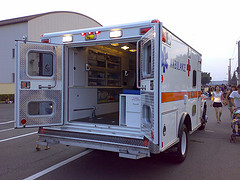 A retired Canadian couple, George and Margaret Garbutts, from Calgary recently visiting Arizona for the winter found their travel insurance plan didn’t help them when they needed it and they warn others to carefully review and understand their travel insurance policies.
A retired Canadian couple, George and Margaret Garbutts, from Calgary recently visiting Arizona for the winter found their travel insurance plan didn’t help them when they needed it and they warn others to carefully review and understand their travel insurance policies.
The issue occurred when George experienced a medical emergency: an emergency appendix surgery at Yuma hospital and the requisite hospital bill (almost $28,000) that followed. The couple thought their travel insurance policy would take care of their medical bills but because George had been treated for an undisclosed pre-existing condition, the insurance company was not liable to cover the medical costs.
Even pre-existing conditions that have nothing to do with the medical emergency can cause your medical coverage to be invalid. This includes even minor pre-existing conditions, which is what George and Margaret discovered. George has been prescribed an inhaler after an X-ray to rule out heart disease indicated he had lung disease.
Now, while this story affects a Canadian couple and (presumably) involves a Canadian insurance company, the rules are true for American travelers as well. Travel insurance plans have an automatic exclusion for pre-existing conditions, which means they do not cover costs related to a pre-existing condition. If you’ve had a medical problem or been treated for a medical condition during the insurance plan’s look-back period, then it’s important to disclose that fact when you make your travel insurance purchase if you are to ensure that your travel policy will cover medical problems on your trip.
See our explanation of look-back periods and pre-existing condition waivers for a better understanding of what you need to know prior to purchasing your travel insurance plan.
